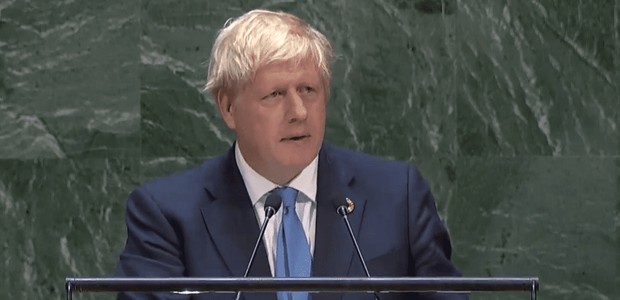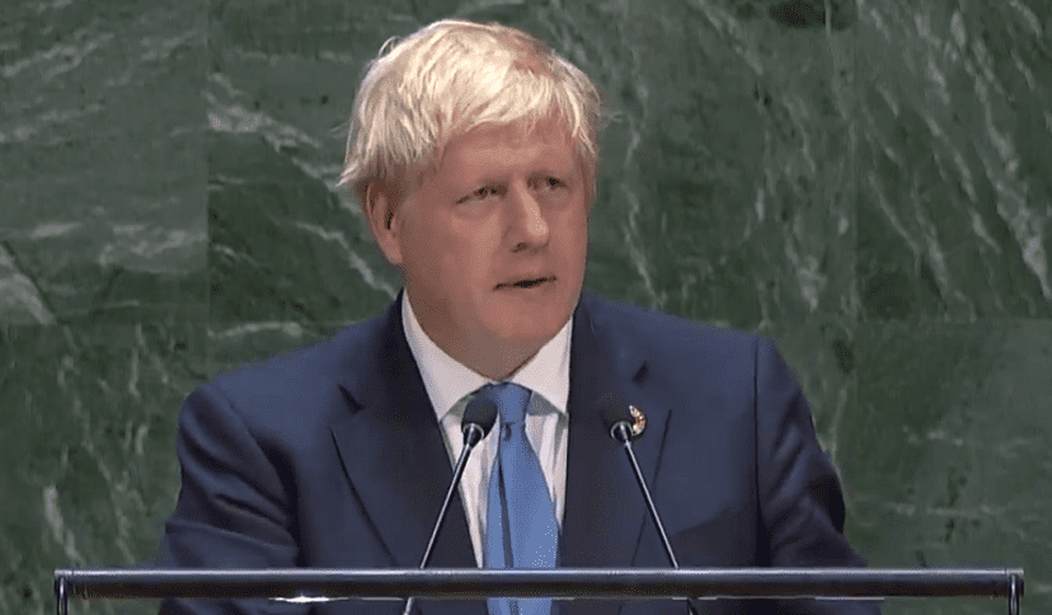
When Greta Thunberg addressed the United Nations General Assembly on Monday, the pessimism, hopelessness, and anger was palpable. The speech Prime Minister Boris Johnson delivered late Tuesday – acknowledging the wonder and limitations of scientific discovery while remaining optimistic and joyful – was the polar opposite, and perfectly illustrated the differences between conservatism and progressive socialism.
At the outset, Johnson outlined some of the challenges posed by emerging technologies, particularly artificial intelligence.
No one can ignore a gathering force that is reshaping the future of every member of this assembly. There has been nothing like it in history. When I think of the great scientific revolutions of the past…I think of new tools that we acquired but over which we, the human race, had the advantage, which we controlled, and that is not necessarily the case in the digital age.
You may keep your secrets from your friends, from your parents, your children, your doctor, even your personal trainer, but it takes real effort to conceal your thoughts from Google.
And if that is true today, in future there may be nowhere to hide. Smart cities will pollulate with sensors all joined together by the Internet of Things. Bollards communing invisibly with lampposts so there is always a parking space for your electric car…but his technology could be used to keep every citizen under round-the-clock surveillance.
A future Alexa will pretend to take orders, but this Alexa will be watching you, clucking her tongue and stamping her foot. In future…your mattress will monitor your nightmares, your fridge will beep for more cheese, your front door will sweep wide the moment you approach like some silent butler.
Well, it sounds just like The Jetsons, complete with a nagging maid. The Jetsons imagined Alexa as a robot, but we know she’s formless, shapeless, but all-knowing. She collects our thoughts, our likes and dislikes, our habits, and that data, that knowledge, that intelligence, equals control.
Every day that we tap on our phones or work on our iPads…we not only leave our indelible spore in the ether, but we are, ourselves, becoming a resource, click by click, tap by tap. Just as the carboniferous period created the indescribable wealth, leaf by decaying leaf, of hydrocarbons, data is the crude oil of the modern economy, and we’re now in an environment where we don’t know who should own these oil fields. We don’t know who should have the rights or the title to these gushers of cash, and we don’t know who decides who to use that data, and can these algorithms be trusted with our lives and hopes?
Should the machines and only the machines decide whether or not we are eligible for a mortgage or insurance or what surgery or medicines we should receive? Are we doomed to a cold and heartless future in which the computer says yes, the computer says no, with the grim finality of an emperor in the arena?
How do you plead with an algorithm? How do you get it to see extenuating circumstances? Hnd how do we know that the machines have not been insidiously programmed to fool us or even to cheat us?
While allowing that “it is a deep human instinct to be wary of any technical progress,” Johnson said, we have so many wondrous possibilities, saying:
I am profoundly optimistic about the ability of new technology to serve as a liberator and to remake the world wondrously and benignly.
But, there is much to consider. The point, Johnson said, is to consider what is at stake and how we direct these technologies.
At stake is whether we bequeath an Orwellian world, designed for censorship and repression and control, or a world of emancipation, debate, and learning, where technology threatens famine and disease but not our freedoms….
Our joint declaration [the Universal Declaration of Human Rights] upholds freedom of opinion and expression, the privacy of home and correspondence, and the right to seek and impart information and ideas. Unless we ensure that new technology reflects this spirit, I fear that our declaration will mean nothing and no longer hold. So the mission of the United Kingdom and all who share our values must be to ensure that emerging technologies are designed from the outset for freedom, openness, and pluralism, with the right safeguards in place to protect our peoples.
Of course, the rights of private industry and innovators must be balanced with individual freedoms, the right to privacy, and national security. Johnson closed with some prescient admonitions.
We need to find the right balance between freedom and control, between innovation and regulation, between private enterprise and government oversight. We must insist that the ethical judgments inherent in the design of new technology are transparent to all, and we must make our voices heard more loudly in the standards bodies that write the rules. Above all, we need to agree a common set of global principles to shape the norms and standards that will guide the development of emerging technologies.”
Johnson’s speech, punctuated with standard British self-deprecating humor and jabs at France, struck that “right balance” between caution and excitement and served as a counterpoint to the Chicken Little worldview represented by Greta Thunberg and her puppeteers.
Watch Johnson’s speech here:
Jennifer Van Laar is Deputy Managing Editor at RedState and Executive Director of the Save California PAC. Follow her on Twitter or Facebook.















Join the conversation as a VIP Member